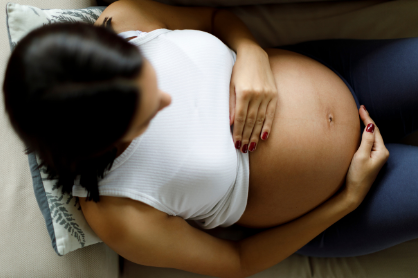
If you are wondering what to drink to prevent pregnancy, this article discusses the various things women drink to avoid pregnancy as well as explore what works and what does not.

What can you drink to prevent pregnancy?
Is that even a thing?
The idea that there are certain things you can drink to prevent pregnancy sounds fabulous for some, while for others it is unbelievable and misleading.
While abstinence and birth control remain the only foolproof methods, many modern contraception methods are also very effective. However, many sexually active individuals (who are not ready for pregnancy) are wrongly informed about contraceptives.
Some people believe that certain drinks can prevent pregnancy. But, there are no conclusive studies that prove the linear and direct relationship between certain drinks (especially when they are not oral contraceptives) and pregnancy prevention.
In this piece, we discuss contraception as well as explore drinks that can prevent pregnancy.

Contraception or birth control is the use of various medications, surgical procedures, drugs, or sexual practices to intentionally prevent pregnancy. With contraception, a woman can actively control her reproductive health and family planning.
Any method that is designed to prevent a woman from being pregnant [after unprotected sex] is a contraceptive.
There are several types of contraception methods:

There is no scientifically proven or manufactured drink to prevent pregnancy. However, there are some claims about certain drinks being able to prevent pregnancy. As earlier stated, while these drinks work for some people, they don’t work for others. Thus, there is no 100% guarantee that they will work for you. We’d discuss some of these drink myths below.
Ginger tea is a [safe] common drink and an inexpensive treatment for nausea and vomiting, cough, heartburn, and stomach upset. Ginger tea has other health benefits like weight loss, healthy skin, fighting cancerous cells, improving brain function, and indigestion.
Ginger drink can also induce uterine contractions (menstruation) and treat menstrual disorders. Therefore, it is popularly believed that a woman can use ginger drink to prevent pregnancy. All you have to do is crush or grate the ginger, add it to boiling water, strain the mixture after 5 minutes, and drink it.
According to this claim, a woman must drink 2 cups of strong ginger tea each day [after unprotected sex] to prevent pregnancy.
Unfortunately, there is no reliable evidence or study that backs up this claim and there is no scientifically proven relationship between ginger and pregnancy prevention.
Lemon and lime [which are citrus fruits] are acidic. Their acidic properties are believed to have spermicidal effects [kill sperm], making it a natural drink to prevent pregnancy. Some people believe that lemon and/or lime seeds mixed with petroleum ether and alcohol form a potent contraceptive.
While this method is not also scientifically proven, recent studies show that lemon and lime juice are commonly used for douches among women at high risk of HIV transmission. Additionally, a few studies also suggest that washing or douching the vagina with lemon and lime juice can lead to abnormal development of cells [cervical dysplasia], causing cancer.
Remember that both lemon and lime are acidic, and excessive acid is bad for vaginal health. The acidity level of lime and lemon can cause an imbalance in the vagina PH and disrupt the normal vaginal flora. Consequently, the harmful bacteria [in the vagina] overgrow and may lead to infection.
As a contraceptive method, lemon or lime juice is unreliable compared to proven options like birth control pills, IUDs, etc.
READ ALSO:
Neem herb is a traditional home remedy that is believed to have anti-inflammatory, antibacterial, antiulcer, antidiabetic, and anticancer properties. It is used for medicinal purposes to treat ulcers, reduce blood sugar levels, prevent plaque [from developing in the mouth], kill bacteria, and prevent pregnancy.
According to research, Neem extracts can interfere with sperm production and reduce the motility, quality, structure, and amount of sperm. Thus, making the sperm incapable of fertilizing the ovum.
The neem leaf extract is hydrophilic. This means that it can mix easily with water and other bodily fluids like sperm. If the extract is injected into the uterus, it can kill sperm within 20 to 30 seconds. Neem can also cause temporary sterility in men when administered as tablets.
On the flip side, high doses of neem extract can promote liver enlargement and liver damage, autoimmune disorders, and kidney disease.
Salt and water are believed to prevent pregnancy. It is erroneously used as an emergency contraception within 5 minutes of unprotected sexual intercourse. On the contrary, salt and water combinations do not have spermicidal properties.
Salt and water are absorbed in the intestine and have nothing to do with the sperm in your body. Therefore, the reliance on salt water as a contraceptive is unproven. High amounts of salt and water can lead to kidney disease and hypertension. Bottom line, taking salt and water [especially in high amounts] is dangerous to the body and cannot be used as a contraceptive.
Parsley is a Mediterranean herb commonly used for cooking because of its flavor. It is used to treat several health conditions like cardiac disease, urinary disease, cancers, hypertension, and diabetes.
Parsley contains anti-inflammatory properties which can reduce the risk of developing kidney stones. It also promotes healthy urine pH and healthy blood pressure.
There are two active compounds found in parsley: myristicin and apiole. If parsley is taken in high amounts, these compounds can induce uterine contractions and lead to miscarriage. Therefore, parsley is claimed to have contraceptive effects after intercourse and can be used for abortion as well.
However, abortion isn’t the only effect of parsley when taken in high doses. Excessive consumption of parsley can lead to liver and kidney damage.
Andrews Liver Salts is an antacid that regulates the acid in the stomach. As an antacid, it neutralizes the stomach acid to aid digestion and improves its pH. It also blocks the gastric cells from secreting acid to reduce the acidity in the stomach.
Andrews Liver Salts is usually recommended to treat indigestion or heartburn. Additionally, it can be used as a laxative to loosen stool and empty the bowels when necessary.
Andrews Liver Salts is neither a spermicide nor a contraceptive. It is an antacid and a subtract of a laxative. Thus, it does not affect fertility and will not “flush out” sperm after sex.
Lime is used to treat many health conditions such as malaria, vaginal infections, gastrointestinal disorders, scurvy, sickle cell disease, and so on. Lime also contains chemicals that prevent the buildup of stones in the bladder/ kidney, as well as kill parasites and bacteria.
Potash is rich in sodium (salt), therefore, when taken excessively, it can accumulate in the system and cause severe and irreparable damage to the kidney.
The combination of lime and potash has no contraceptive effect.

Alcohol can make conception difficult, especially when it is taken frequently or during the second half of the menstrual cycle. A recent study reveals that frequent heavy drinking lowers female fertility by interrupting the menstrual and ovulation cycle, disrupting ovarian function.
However, there is no alcohol drink that particularly prevents pregnancy.
Turmeric contains anti-inflammatory and antioxidant properties which are beneficial to the body. Turmeric also has an active ingredient called curcumin which reduces the growth of the endometrial cells in the lining of the uterus. This makes it a helpful treatment for endometriosis, premenstrual syndrome, and ovarian cysts.
Unfortunately, turmeric has no contraceptive effect. Therefore, preparing it as a drink to prevent pregnancy is pointless.
Soda doesn’t directly prevent pregnancy. However, it can reduce fertility and the average monthly probability of conception due to its contents.
Can Ampiclox prevent pregnancy?
Ampiclox is an antibiotic and is used to treat bacterial infections. Sperm is not bacteria and so, Ampiclox cannot affect it in any way. Ampiclox is misconstrued to be effective against conception. Despite the widespread reliance and use of ampiclox, there is no relationship between ampiclox and preventing pregnancy.
What can 100% prevent pregnancy?
The only way to 100% prevent pregnancy is to abstain from sexual intercourse. That is, refraining from all forms of sexual activity and genital contact. This is the only (naturally) 100% effective method to prevent pregnancy.
What can I take to prevent pregnancy?
Final Thoughts
The notion of preparing a drink to prevent pregnancy seems very appealing. Unfortunately, there are no conclusive studies on the matter. Much of the buzz around what to drink to prevent pregnancy is derived from limited animal studies and anecdotal speculation.
Research shows that using unconventional methods of contraception is ineffective and harmful to the body. Such methods can make you susceptible to certain diseases if consumed in high amounts.
There is no specific drink to prevent pregnancy. Practicing safe sex, abstinence, and doctor-prescribed birth control is by far the most effective way to prevent pregnancy. If you are in doubt about the best contraceptive method to use, consult a doctor to discuss other available options and evidence-based family planning guidance.
REFERENCES
Mother To Baby | Fact Sheets [Internet]. Brentwood (TN): Organization of Teratology Information Specialists (OTIS); 1994-. Ginger. 2021 Mar 1. Available from: https://www.ncbi.nlm.nih.gov/books/NBK582731/
BMC Public Health
https://bmcpublichealth.biomedcentral.com › articles
Lete I, Allué J. The Effectiveness of Ginger in the Prevention of Nausea and Vomiting during Pregnancy and Chemotherapy. Integr Med Insights. 2016 Mar 31;11:11-7. doi: 10.4137/IMI.S36273. PMID: 27053918; PMCID: PMC4818021.
Ginger Tea in Pregnancy: Benefits, Safety, and Directions
Healthline
https://www.healthline.com › nutrition › ginger-tea-pr…
Healthline
https://www.healthline.com › health › ginger-water
University of Louisville
https://louisville.edu › sphis › news › drinking-alcohol-c…
Healthline
https://www.healthline.com › health › does-alcohol-kil…
Gbotolorun SC, Osinubi AA, Noronha CC, Okanlawon AO. Antifertility potential of Neem flower extract on adult female Sprague-Dawley rats. Afr Health Sci. 2008 Sep;8(3):168-73. PMID: 19357745; PMCID: PMC2583274.
Farzaei MH, Abbasabadi Z, Ardekani MR, Rahimi R, Farzaei F. Parsley: a review of ethnopharmacology, phytochemistry and biological activities. J Tradit Chin Med. 2013 Dec;33(6):815-26. doi: 10.1016/s0254-6272(14)60018-2. PMID: 24660617.
Chang H, Lei L, Zhou Y, Ye F, Zhao G. Dietary Flavonoids and the Risk of Colorectal Cancer: An Updated Meta-Analysis of Epidemiological Studies. Nutrients. 2018 Jul 23;10(7):950. doi: 10.3390/nu10070950. PMID: 30041489; PMCID: PMC6073812
healthcareJanuary 31, 2024
healthcareFebruary 27, 2025








